Year 5
The English curriculum is built around the three interrelated strands of language, literature and literacy. Teaching and learning programs should balance and integrate all three strands. Together, the strands focus on developing students' knowledge, understanding and skills in listening, reading, viewing, speaking, writing and creating. Learning in English builds on concepts, skills and processes developed in earlier years, and teachers will revisit and strengthen these as needed.
In Years 5 and 6, students communicate with peers and teachers from other classes and schools, community members, and individuals and groups, in a range of face-to-face and online/virtual environments.
Students engage with a variety of texts for enjoyment. They listen to, read, view, interpret and evaluate spoken, written and multimodal texts in which the primary purpose is aesthetic, as well as texts designed to inform and persuade. These include various types of media texts including newspapers, film and digital texts, junior and early adolescent novels, poetry, non-fiction and dramatic performances.
The range of literary texts for Foundation to Year 10 comprises Australian literature, including the oral narrative traditions of Aboriginal and Torres Strait Islander Peoples, as well as the contemporary literature of these two cultural groups, and classic and contemporary world literature, including texts from and about Asia.
Literary texts that support and extend students in Years 5 and 6 as independent readers describe complex sequences, a range of non-stereotypical characters and elaborated events including flashbacks and shifts in time. These texts explore themes of interpersonal relationships and ethical dilemmas within real-world and fantasy settings. Informative texts supply technical and content information about a wide range of topics of interest as well as topics being studied in other areas of the curriculum. Text structures include chapters, headings and subheadings, tables of contents, indexes and glossaries. Language features include complex sentences, unfamiliar technical vocabulary, figurative language, and information presented in various types of graphics.
Students create a range of imaginative, informative and persuasive types of texts including narratives, procedures, performances, reports, reviews, explanations and discussions.
(source: www.australiancurriculum.edu.au)
Achievement Standard
Receptive modes (listening, reading and viewing)
By the end of Year 5, students explain how text structures assist in understanding the text. They understand how language features, images and vocabulary influence interpretations of characters, settings and events.
When reading, they encounter and decode unfamiliar words using phonic, grammatical, semantic and contextual knowledge. They analyse and explain literal and implied information from a variety of texts. They describe how events, characters and settings in texts are depicted and explain their own responses to them. They listen and ask questions to clarify content.
Productive modes (speaking, writing and creating)
Students use language features to show how ideas can be extended. They develop and explain a point of view about a text, selecting information, ideas and images from a range of resources.
Students create imaginative, informative and persuasive texts for different purposes and audiences. They make presentations which include multimodal elements for defined purposes. They contribute actively to class and group discussions, taking into account other perspectives. When writing, they demonstrate understanding of grammar using a variety of sentence types. They select specific vocabulary and use accurate spelling and punctuation. They edit their work for cohesive structure and meaning.
(source: www.australiancurriculum.edu.au)
- Plus Plan
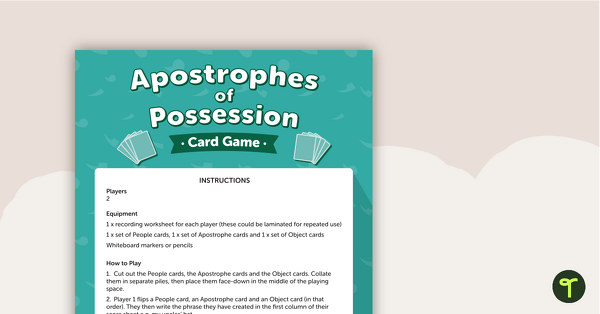
Apostrophes of Possession Card Game
An interactive card game for students to play when consolidating their understanding of apostrophes of possession.
- Free Plan
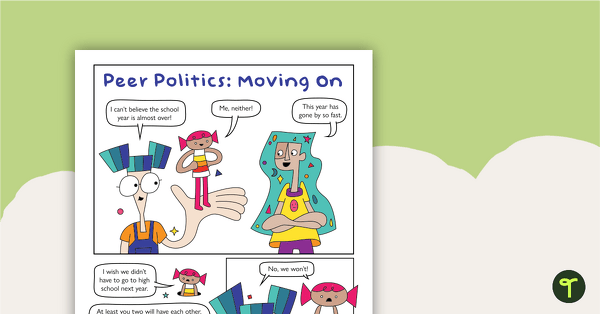
Peer Politics: Moving On (Comic) – Worksheet
A comprehension worksheet for a comic from the Year 6 magazine (Issue 3).
- Plus Plan
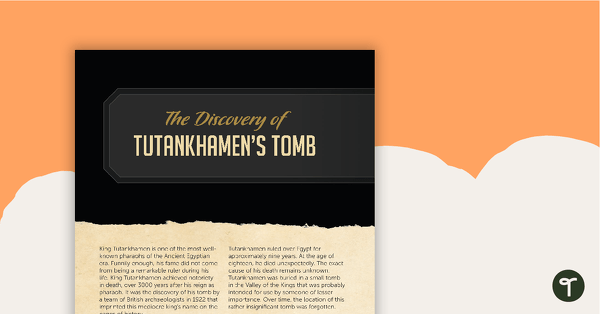
The Discovery of Tutankhamen's Tomb – Worksheet
A comprehension worksheet for an information report from the Year 6 magazine (Issue 3).
- Plus Plan
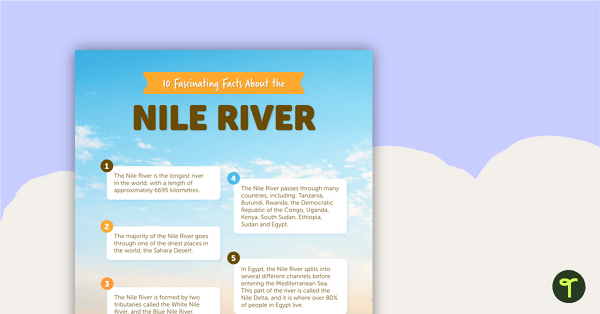
10 Fascinating Facts About the Nile River – Worksheet
A comprehension worksheet for an article from the Year 5 magazine (Issue 3).
- Free Plan
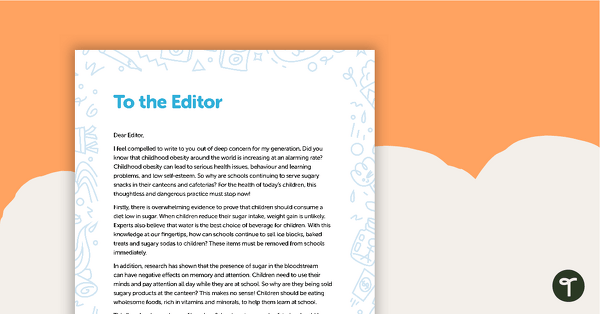
Letter to the Editor (Sugary Snacks Ban) – Worksheet
A comprehension worksheet for a letter to the editor from the Year 5 magazine (Issue 3).
- Plus Plan
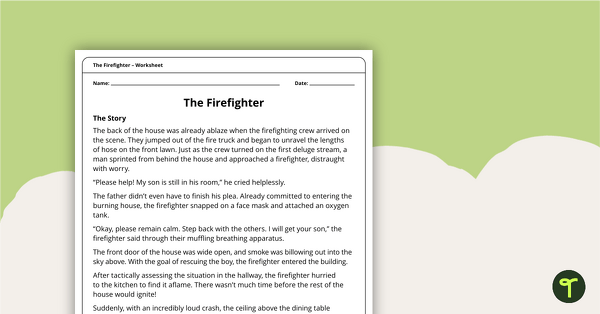
The Firefighter Story – International Women's Day
A story and accompanying worksheet that explores issues regarding female gender stereotypes.
- Free Plan
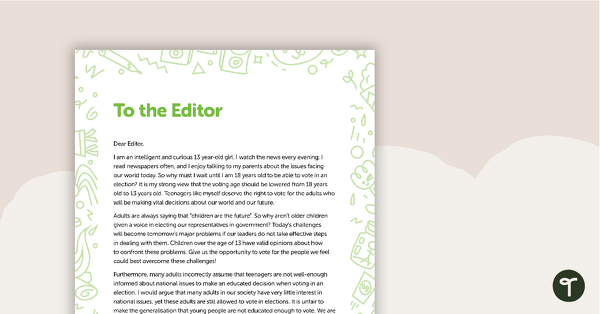
Letter to the Editor (Voting Rights) – Worksheet
A comprehension worksheet for a letter to the editor from the Year 6 magazine (Issue 3).
- Plus Plan
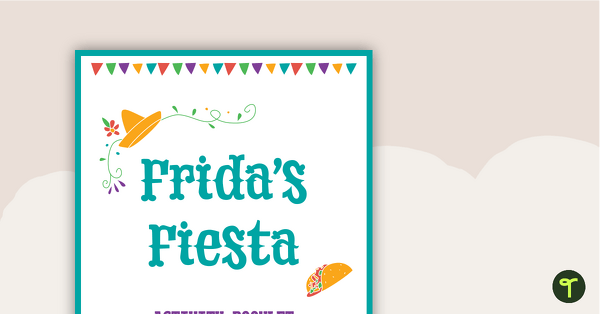
Frida's Fiesta: Layout Confusion – Projects
A project where students apply their measurement and fraction knowledge to determine where furniture goes in a restaurant.
- Plus Plan
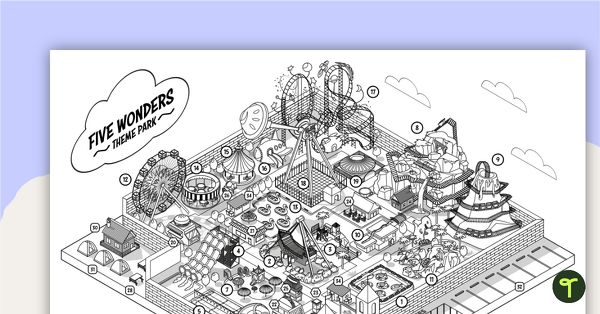
Five Wonders Theme Park – Stimulus Posters
A number of stimulus posters all themed around Five Wonders Theme Park.
- Plus Plan
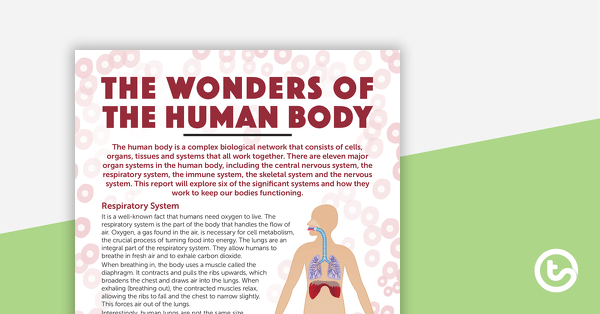
The Wonders of the Human Body – Worksheet
A comprehension worksheet for an information report from the Year 6 magazine (Issue 2).
- Plus Plan
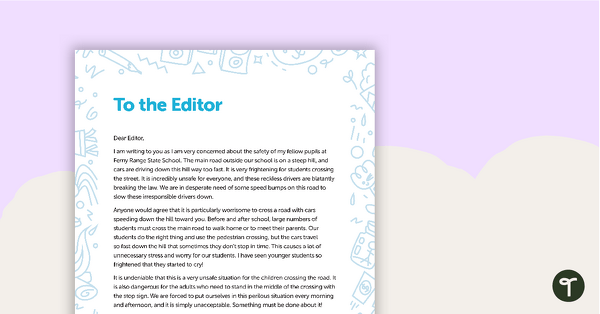
Letter to the Editor (School Crossing Concerns) – Worksheet
A comprehension worksheet for a letter to the editor from the Year 5 magazine (Issue 2).
- Plus Plan
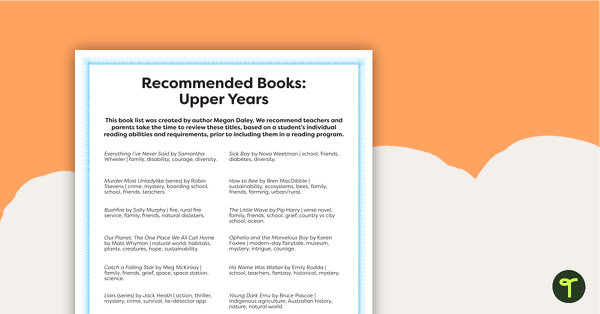
Recommended Books: Upper Years
A list of recommended books for upper years created in collaboration with award-winning teacher librarian Megan Daley.
- Plus Plan
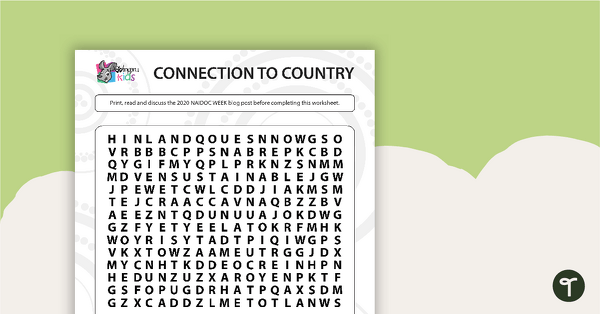
NAIDOC Week Connection to Country Word Search - Upper Primary
A NAIDOC Week Connection to Country Word Search suitable for upper primary school students.
- Plus Plan
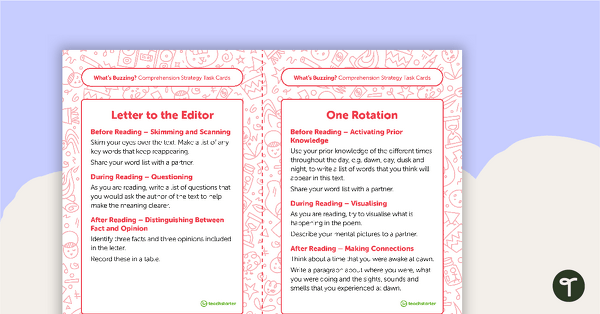
Year 5 Magazine - "What's Buzzing?" (Issue 2) Task Cards
A set of five literacy rotation task cards to be used in conjunction with Issue 2 of Teach Starter's Year 5 magazine.
- Plus Plan
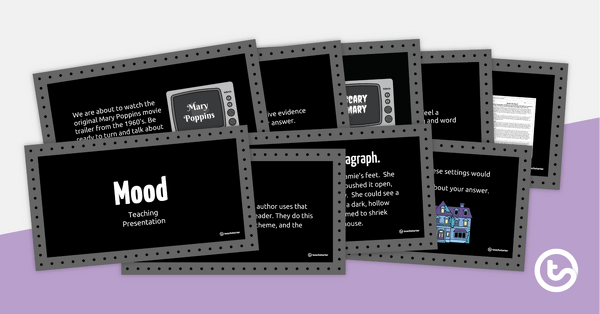
Literary Mood – Teaching Presentation
An editable PowerPoint presentation to use when teaching mood.
- Plus Plan
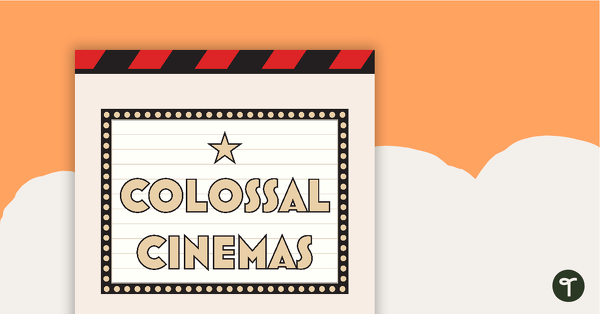
Colossal Cinemas: Movie of the Times – Project
An inquiry project in which students compare and contrast movies from today with those from a chosen decade.
- Plus Plan
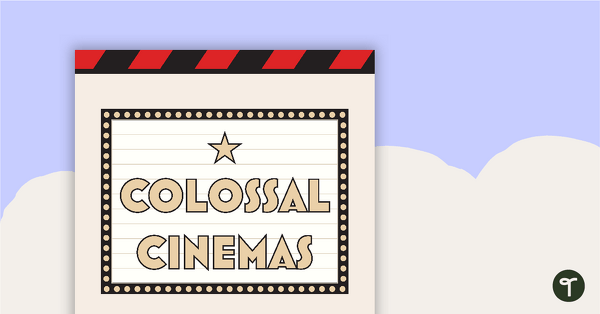
Colossal Cinemas: Which Flavour Will Be Popular? – Project
A project in which students design and write a persuasive advertisement for their own popcorn flavour as well as a 3D popcorn container.
- Plus Plan
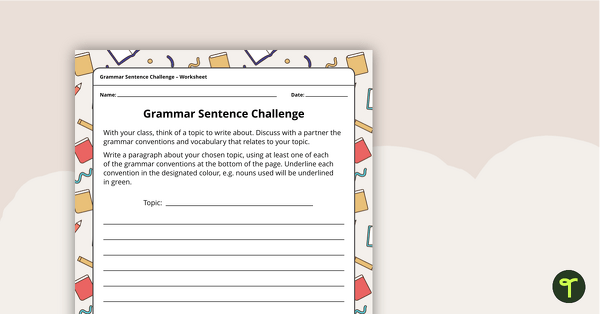
Grammar Sentence Challenge Worksheet
Practise using different parts of speech in a written piece of text with this grammar activity.
- Plus Plan
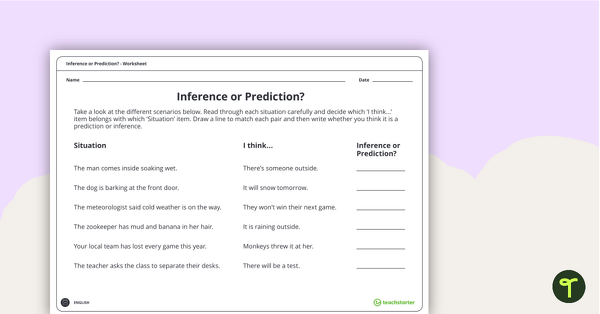
Inference or Prediction? Worksheet
A worksheet to use when teaching your students the difference between an inference and a prediction.
- Plus Plan
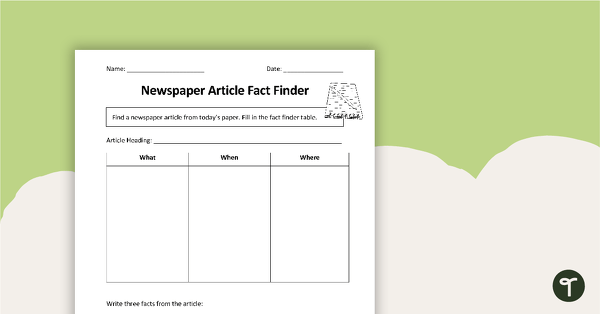
Recalling Facts - Newspaper Worksheet
A worksheet to use when teaching students how to recall facts and details when reading.
- Plus Plan
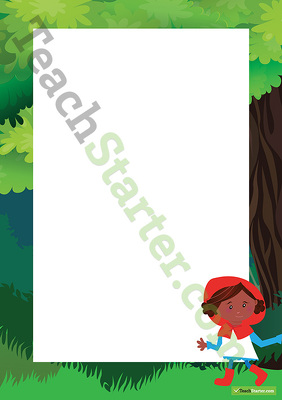
Little Red Riding Hood Fairy Tale Border - Word Template
Create your own content with this Microsoft Word document Little Red Riding Hood themed page border.
- Plus Plan
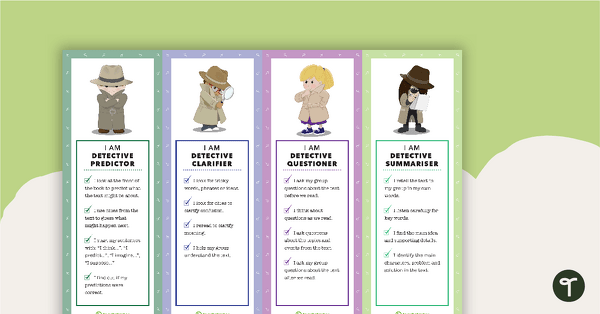
Reading Detectives Bookmarks
8 colourful reading detective bookmarks to use during guided reading sessions in the classroom.
- Plus Plan
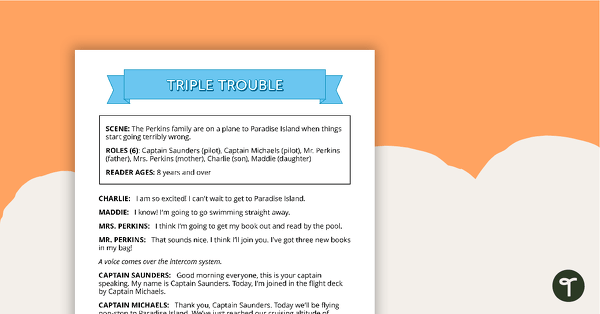
Comprehension - Triple Trouble
A fun script and set of questions to help students develop reading and comprehension strategies.
- Plus Plan
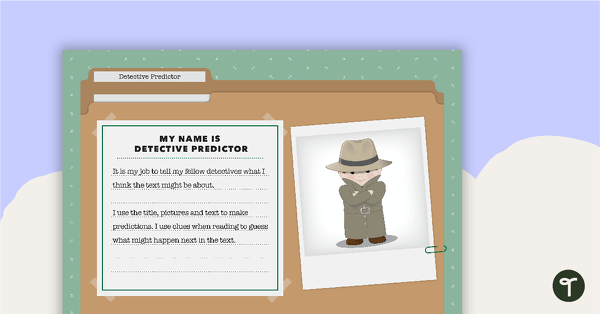
Reading Detectives Resource Pack
A 16 page resource pack including 8 detective roles to assign to students during guided reading sessions.
- Plus Plan
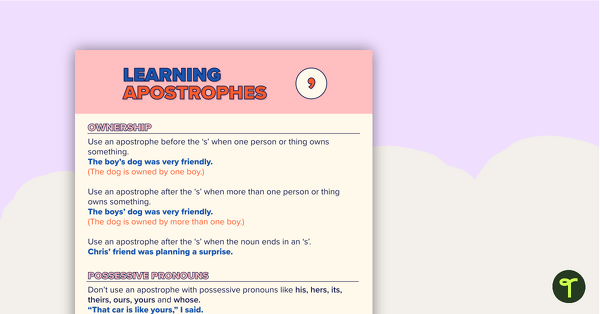
Apostrophes Poster
A poster explaining how to use apostrophes correctly.
- Plus Plan
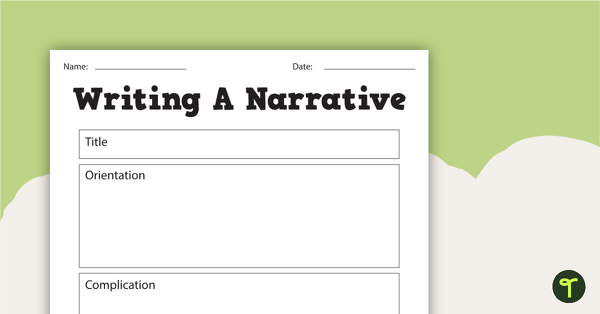
Narrative Writing Pack
A narrative writing teaching pack containing 9 worksheets and posters.
- Plus Plan
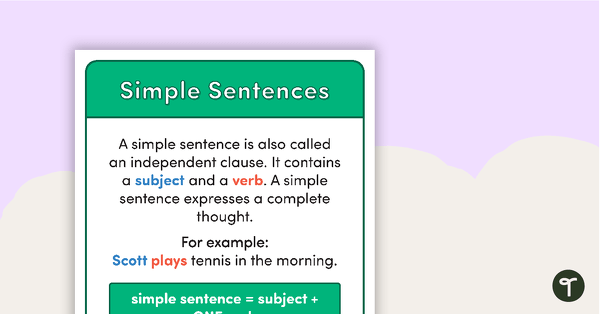
Types of Sentences Posters - Large Text
A set of 7 posters outlining the structure of various types of sentences.
- Plus Plan
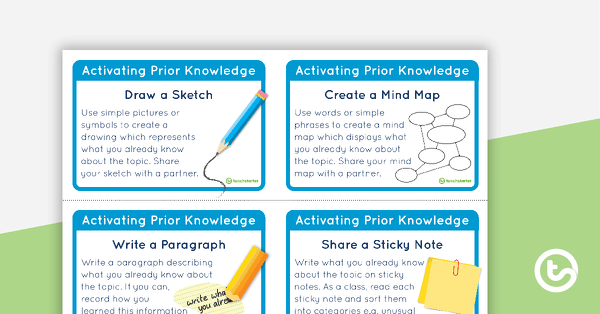
Activating Prior Knowledge - Comprehension Strategy Task Cards
A set of 12 task cards to help students activate their prior knowledge before reading.
- Plus Plan
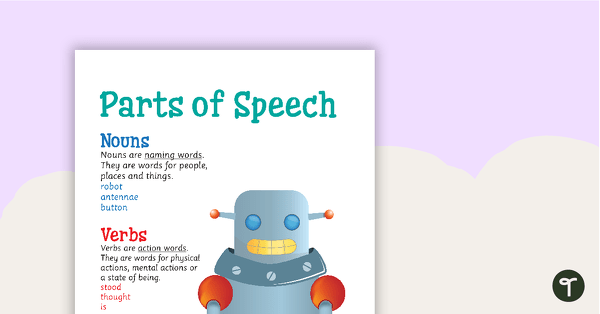
Parts of Speech Poster
A poster introducing students to nouns, verbs, adjectives, adverbs, and adverbial phrases.
- Plus Plan
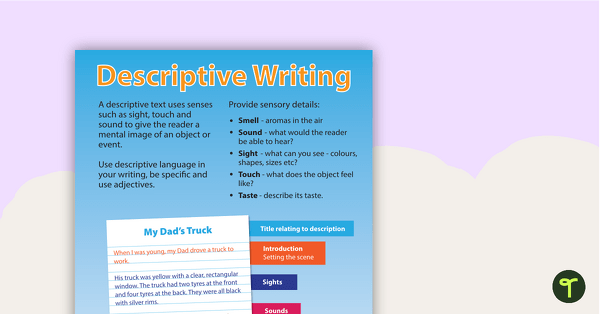
Descriptive Writing Poster With Annotations
A poster outlining the main points and structure of a descriptive text.
- Plus Plan
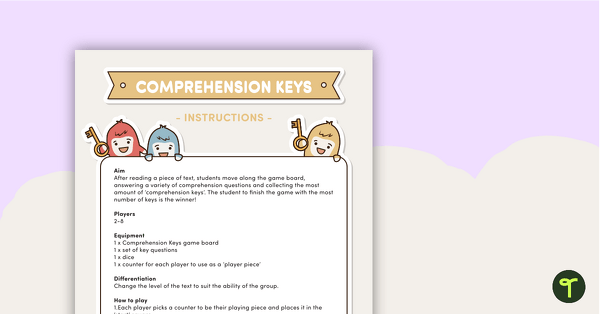
Comprehension Keys Board Game
A fun comprehension strategy board game for students to play during literacy rotations.
- Plus Plan
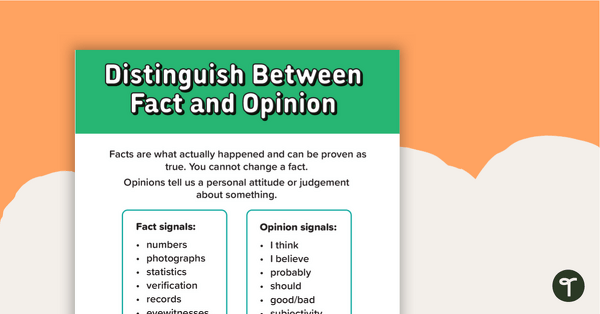
Distinguish Between Fact and Opinion Poster
A poster highlighting how to distinguish between fact and opinion when reading a piece of text.